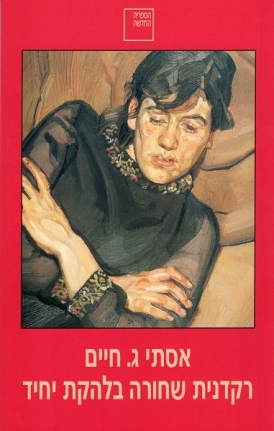
Black Dancer in a Solo Troupe
The twelve stories in this collection form a kind of novel, containing archetypal characters who appear under various guises and share a world of experience. These girls and young women rebel against their parents and environment and seek to escape to other worlds, often overseas. But this is not an ordinary youthful rebellion, its roots lie deep in the Israeli psyche.Indeed, all these young heroines are carrying some of the emotional disability of their parents, refugees who came to Israel from other cultures and were unable, or unwilling, to strike roots in the Levant. The author depicts the anomalous condition of these people, emotionally unbalanced and socially dislocated, but it is the next generation, afflicted by some of the same symptoms, that engages her interest. The little girls in these stories escape to imaginary worlds, or try to overcome gravity by dancing. As they mature, they go out into the world in search of life and excitement, but their mental fragility expresses itself in various neurotic forms, such as addiction to medication, anorexia or nightmares. They are also rebelling against their bodies, and wind up wandering in Amsterdam or New York with thousands of other footloose young people from around the world, seeking to submerge their identities in the capitals of the West. Their only lifeline, which helps them to keep their sanity and avoid the more dangerous currents of life, is motherhood, which is depicted with delicacy and sensitivity.

-
“ Warm, moving, sad, funny, wise, polished and marvellously sensitive.”
-
“ Hayim is a serious and promising writer.”
-
“ All the critics have praised this book, and for once I have to agree with them. The delicate depiction of the insane situation of the protagonists' lives, the sad ending and the sensitivity with which the author deals with each one, all testify to a great writer.”
